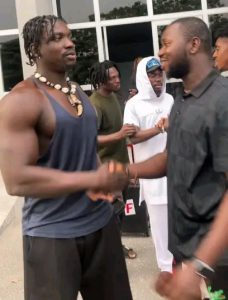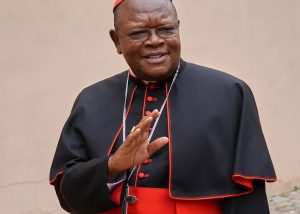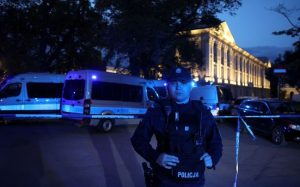South Sudan imposes nighttime curfew after anti-Sudanese protests turn violent
3 min readSouth Sudan has imposed a nighttime curfew following violent protests in the capital, Juba, which turned into widespread looting of Sudanese-owned businesses. The curfew, set to begin at 6:00 pm each day, was announced by Police Chief Abraham Manyuat on Friday through state television, as protests continued in Juba and other cities across the country.
The unrest was sparked by reports of South Sudanese civilians allegedly killed by Sudan’s Armed Forces (SAF) in the Sudanese city of Wad Madani, located in the capital of El Gezira State. Graphic videos of the killings circulating on social media fueled the outrage, escalating tensions between the two neighboring countries.
The protests, which began peacefully, quickly grew violent. Demonstrators targeted shops owned by Sudanese nationals, vandalizing and looting them in multiple neighborhoods of Juba. Security forces responded with force, including the deployment of officers and heavy gunfire. Police fired warning shots into the air to disperse the crowds, but the violence continued to escalate.
As the situation grew more tense, the police imposed the curfew in an attempt to regain control and restore order. Police Chief Manyuat urged residents to comply with the curfew, which is aimed at preventing further violence and looting. The curfew is also a measure to maintain peace as protests spread beyond Juba, with reports of unrest in other cities.
In response to the attacks on Sudanese businesses and properties, police spokesperson Col. John Kassara Koang Nhial reassured the Sudanese community living in South Sudan that they would be protected. He made it clear that any looting or violence against their property would not be tolerated, stressing that law enforcement would act decisively to ensure the safety of all citizens, including Sudanese nationals.
The violence in Juba and other parts of South Sudan underscores the growing tensions between the two nations. South Sudan and Sudan share a history of political and ethnic conflict, with disputes over borders, resources, and historical grievances. The recent unrest has intensified these issues, as many South Sudanese nationals are still stranded in conflict-ravaged Sudan, facing severe hardships.
South Sudan gained independence from Sudan in 2011, but the relationship between the two countries has remained strained. The conflict in Sudan, particularly in areas like Darfur and the ongoing power struggle within Sudanese politics, has had a direct impact on South Sudan, with thousands of South Sudanese nationals remaining stuck in Sudan amid the violence. Many of them are unable to return to South Sudan due to the deteriorating situation.
The protests and violence in South Sudan are also seen as a reflection of the broader regional instability. While South Sudan has faced its own internal challenges, including civil war, the situation in neighboring Sudan has further complicated the dynamics. The violence in Sudan, particularly the targeting of South Sudanese civilians, has fueled anger and resentment in South Sudan, leading to protests against Sudanese nationals in Juba.
The curfew is seen as a necessary step to quell the unrest, but it highlights the deepening divide between the two nations and the challenges facing both governments. As South Sudan continues to recover from its own years of conflict, the relationship with Sudan remains a critical issue. The curfew, along with increased security presence, aims to prevent further damage to Sudanese businesses and protect the livelihoods of Sudanese nationals in South Sudan.
The situation is further complicated by the humanitarian crisis in Sudan, which has led to a large number of refugees and displaced persons. The political and social instability in Sudan has had far-reaching consequences, including increasing tensions with neighboring countries like South Sudan. As the situation continues to unfold, it remains to be seen how both governments will address the underlying issues that have fueled the unrest and whether relations between the two nations can be repaired.
In conclusion, the violence in Juba and other South Sudanese cities highlights the fragile relationship between South Sudan and Sudan. The imposition of a nighttime curfew is an effort to restore order, but the deeper tensions and frustrations between the two nations are unlikely to be resolved without a more comprehensive approach to diplomacy and conflict resolution. As the situation develops, the international community’s response will likely play a significant role in helping to address the ongoing crisis and its humanitarian implications.






